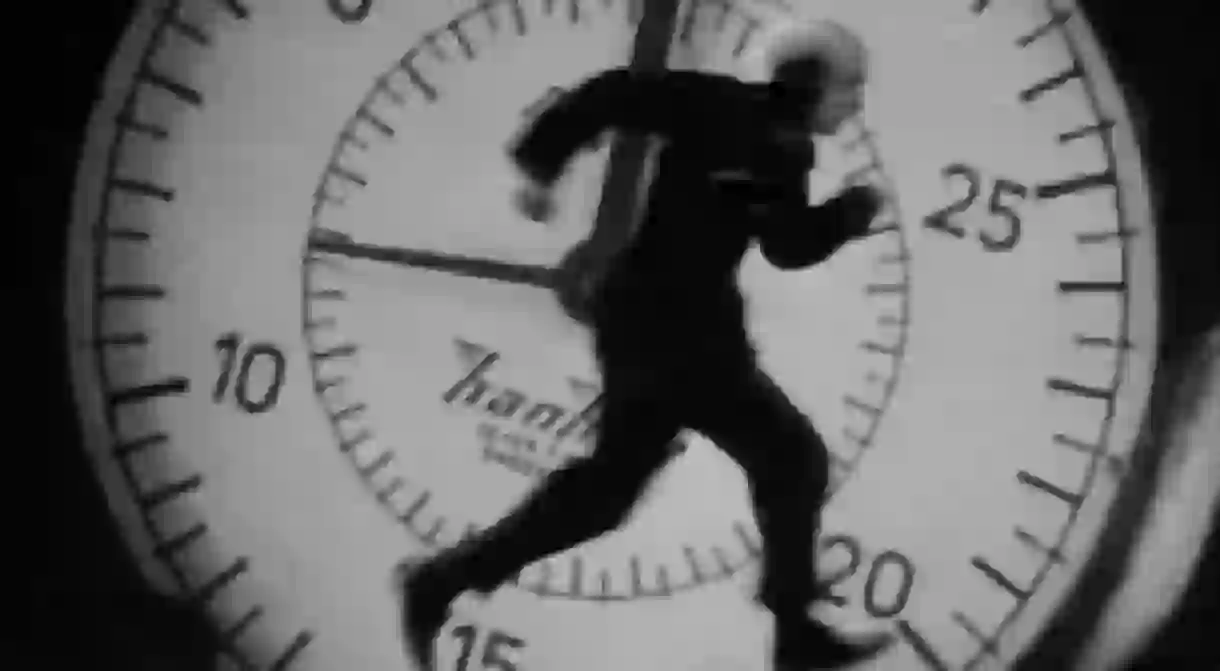An Introduction To The Films Of Danish Troublemaker Lars Von Trier

Unsettling, impressive, psychologically challenging, controversial, engrossing, unique. These adjectives only just begin to describe Lars von Trier’s complex films. The Danish-born director seizes the opportunity to experiment and rebel against the conventional with new ideas and projects in each of his films. Whether he uses a standard digital camera or the worst setting on Earth, or uses elements of the supernatural or keeps a completely real set, Trier challenges himself to challenge the world.

Europa (1991)
Von Trier’s third theatrical film of the Europa trilogy is set soon after the end of the Second World War, following the story of a young American hoping to bring happiness to Germany. He finds himself in love with a femme fatale and caught up in a pro-Nazi conspiracy. But as always von Trier did not let the film develop in the expected manner, as he approaches it using an experimental style. The shots which are mainly black and white but see glimpses of color have that unsettling surreal sense about them, which so often is part of von Trier’s films, emphasized by his frequent use of rear-projection.

Nymphomaniac
There is no shying away from the explicit sex scenes in Nymphomaniac. However, beyond these everlasting uncomfortable moments is a complex commentary about the coexistence of sex, love, anguish and decisions. The film follows a woman named Joe who after many years of intense and frequent intercourse lost her formerly animalistic sexual appetite. She recounts her experiences honestly and we see that she is in fact no different to everyone else. The depressing and somewhat twisted story is one of extreme controversy and raw desperation – a powerful masterpiece, through which von Trier invades and questions the deepest corners of human reason and emotions.

Melancholia
Lars von Trier’s film Melancholia is a film with more of a personal touch than his other works. The End of the World is announced and two sisters, one of whom is getting married at the time, have to put up with each other despite the friction between them. One of them becomes practically catatonic with psychological distress whilst the other attempts to keep it together to prepare for the imminent disaster. Based on his own experiences battling long-term depression, this film shows that those who struggle the most with mental health problems are sometimes the strongest calming force for others when the world comes crashing down figuratively or, as is the case in this film, literally.

The Kingdom
The Kingdom started out as a TV mini-series which became so popular that it was made into a five-hour long film for the English-speaking public and usually goes by the name of Riget. It is a gripping film in which the supernatural is merged with hospital drama and bizarre human phenomena. Von Trier uses his well-known wry humor through the appearance of dishwashers with Down Syndrome, who have the most in-depth discussions about the strange happenings at the hospital. Highly controversial, The Kingdom destroys the rationality of the scientific, and is a good introduction to von Trier’s individual style.
Dancer in the Dark
With major disagreements frequently breaking out between the director and the lead actress Björk, the making of this film is another example of when struggles can result in excellence. Dancer in the Dark, which won the Palme d’Or at the Cannes Film Festival, is a musical drama which tells the story of when a Czech immigrant, who is going blind, and her son migrate to America. Filmed using hand-held digital cameras, Dancer in the Dark occasionally refers back to his earlier Dogme 95 style, which shows the story in a light which is far too close to real life for comfort, making the brutal ending all the more devastating.
Antichrist
Yet another one of von Trier’s powerful experiments is Antichrist, a horror film in which the death of a child makes the father experience strange visions and the mother become sexually violent. Brutality, mutilation, and psychological trauma are what reign in this terrifying film, which was made during a period when the director had not fully recovered from depression. It premiered at the 2009 Cannes Film Festival where Charlotte Gainsbourg won the award for Best Actress, and the film became a source of controversy amongst critics and viewers, who disagreed on the level of praise that the content should be given, although they never questioned the director’s talent.

Breaking the Waves
Often viewed as von Trier’s best ever film, Breaking the Waves is praised not only for the skill of the filming, but also for the outstanding performance of the lead actress Emily Watson. This is another film which was influenced by the raw realism of Dogme 95, although again not fully abiding by the rules of that style. Breaking the Waves follows a religious woman whose husband has been left disabled after an accident and who urges her to seek sexual satisfaction by having intercourse with other men. The questions surrounding sex, religion and despair, like in many of von Trier’s films, are certainly thought-provoking.

Dogville
While some believe the filming of Dogville to be a meaningless gimmick, others see it as a triumphant technique that allows the viewer to deeply consider the topics and commentaries which are present in the film. Borrowing elements from Brechtian theatre, such as a bare stage with indications as to where the props and doors should be, in this film von Trier experiments with the reactions of the audience just as much as the filming techniques. Dogville tells the tale of a woman hiding from mobsters in a town where she has to comply with what every individual requests, which affects their own lives just as much as that of the main character.













